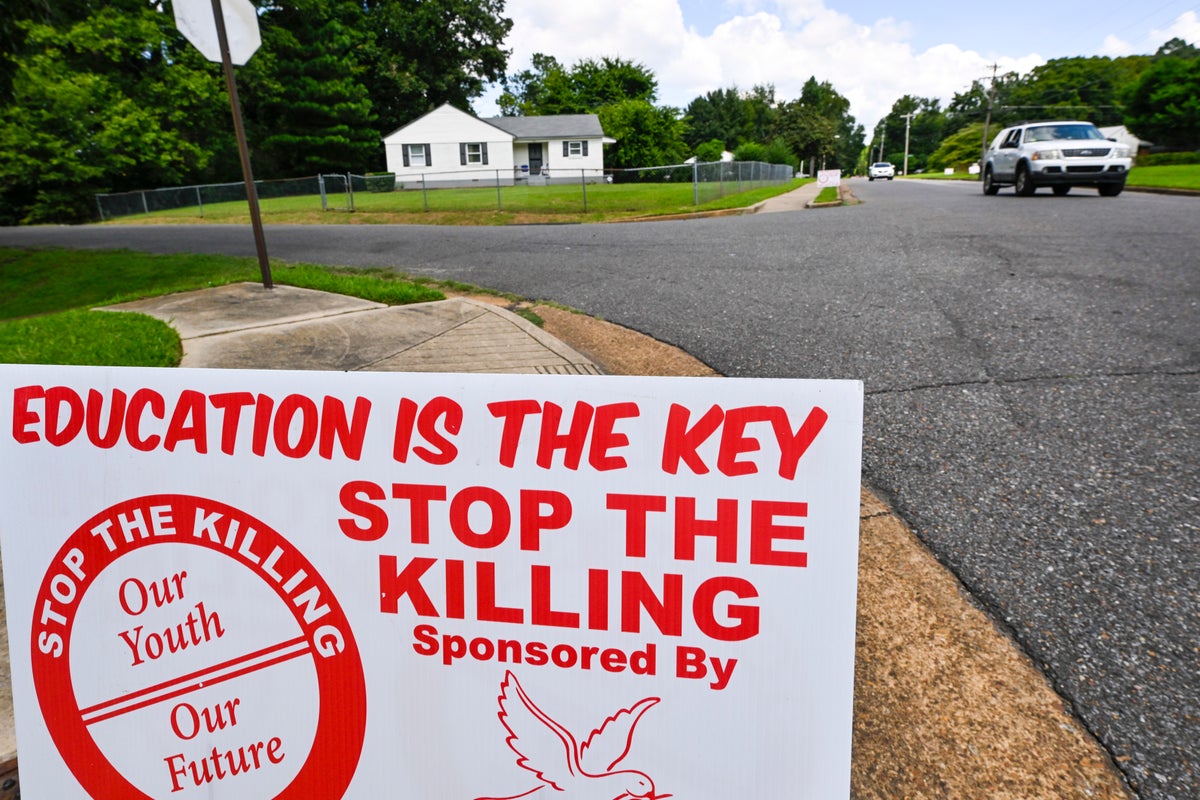
The high-profile killings rattling Memphis this week have added fuel to calls by some politicians for stricter sentencing laws throughout the U.S., sparking alarm among criminal justice reform advocates who say that approach is outdated and ineffective.
The political division has only deepened as many maintain that the deaths — of a jogger last week and a spate of shooting victims Wednesday — would have been avoided had the latest version of Tennessee's so-called “truth in sentencing” statute been in effect.
Such measures generally require those convicted of certain felony crimes to serve at least 85% of their imposed sentences. The new Tennessee law, which took effect July 1, now requires defendants to serve entire sentences for certain convictions and updates the list of convictions where at least 85% of a sentence must be served.
While the laws’ backers are largely Republicans, Memphis Mayor Jim Strickland, a Democrat, also said that if the state’s law had been in place earlier, the killings would not have happened. “This is no way for us to live, and it is not acceptable,” he said.
The arguments frustrate those who want to eliminate harsh sentencing laws. They counter that such tough-on-crime policies don’t reduce crime rates and only further spike prison populations.
“The vast majority of people who come home from prison never engage in gun violence,” David Muhammad, executive director of the National Institute for Criminal Justice Reform, said in an interview.
Muhammad has worked in Memphis and said he previously had a meeting scheduled with Strickland for next week. He plans to promote investing in community violence prevention programs rather than stricter sentences.
“The issue with truth in sentencing is that it eliminates the possibility that somebody might be prepared for release sooner and that all people sort of are corrected at a certain period of time, which is of course not true,” said Ashley Nellis, a senior research analyst with The Sentencing Project. “People reform over different periods of time that fluctuate from person to person.”
But as calls to revisit so-called truth in sentencing laws have increased, lawmakers on both sides of the political aisle have remained hesitant to do so out of fear of looking weak on crime, Nellis added.
Tennessee was among the small handful of states that have required individuals to serve a minimum amount of their sentences since the 1980s — when the idea initially began taking off. However, under the 1994 federal crime bill signed by President Bill Clinton, states were given incentives to adopt such laws by promising them more money to build prisons if they did so. By 1998, nearly 30 states had adopted some form of “truth in sentencing” as the incarcerated population and the number of prisons grew.
The percentage of sentences that must be served varies, as well as the crimes covered by the law, but they can range anywhere from 50% to 100%.
GOP leaders in Tennessee have used the recent killings in Memphis to tout the state’s strict new sentencing measure and to call for stricter measures.
Earlier this week, U.S. Marshals arrested Cleotha Abston, 38, in connection with the killing of Eliza Fletcher, who was abducted last week during a pre-dawn run.
Abston previously kidnapped a prominent Memphis attorney in 2000 when he was 16 years old. He spent 20 years in prison for that crime, but he had been sentenced to 24.
“This case not only proves that the recently passed Truth in Sentencing Act was necessary, but that it was long overdue,” Tennessee Lt. Gov. Randy McNally said in a statement. Fletcher, he declared, “would be alive today” if Abston had completed his full sentence. On Thursday, he told The Associated Press that the events show that “we do need the law and possibly need to expand the law.”
On Wednesday, a gunman livestreamed himself driving around Memphis shooting at people, killing four and wounding three others in seemingly random attacks. After Ezekiel Kelly was identified, some pointed out that he he had been released early from a prison sentence for aggravated assault — something that would not be allowed under the state’s current law.
Kelly was sentenced to three years in prison, but was released in March after serving just over two years behind bars, including credit he received for time he was jailed prior to his plea.
“He had a violent history,” said Tennessee House Speaker Cameron Sexton, a Republican. “And you cannot treat violent criminals the same as nonviolent.”
Sexton said he would support removing or reducing a credit program that helps inmates shave more time off their sentences for good behavior and trying juveniles as adults if they commit violent crimes. Those proposals will likely be introduced during the 2023 legislative session, which starts in January.
But Stephanie Wylie, counsel in the Brennan Center’s Justice Program, said strict sentencing laws eliminate the incentive for people in prison to take rehabilitative classes in exchange for reducing their time.
“These classes make it easier for incarcerated people to reintegrate into the community,” Wylie said.
And Kate Trammell with the nonprofit Prison Fellowship stressed that justice is about more than prison time.
“(Justice) demands that time behind bars prepare people to live as good citizens,” she said. “The suggestion that removing rehabilitation incentives from sentencing laws could make communities safer is a dangerous step backward. Instead, we must take what we have learned about justice that restores and use it to protect our neighbors.”







